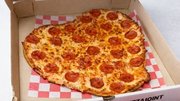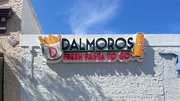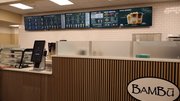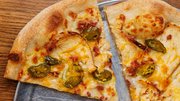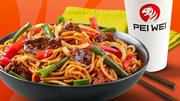Article
Einstein Bros. finds secret to success
Despite struggling economy, Einstein Bros. Bagels stays strong.

June 9, 2008
When Einstein Bros. Bagels found itself in dire financial straits five years ago, it survived by doing the unthinkable — looking beyond the bagel.
Einstein expanded its menu to include breakfast, lunch and snack items, and that decision saved the company from potential ruin, said Nicole Miller Regan, a senior research analyst at Minneapolis-based international middle market research firm, Piper Jaffray.
But it wasn't the only crucial strategic move made by management. Over the past five years, the company has implemented a series of changes that have strengthened its infrastructure and put it in a position to thrive in the current economic downturn.
"Three years ago this was a turnaround story, but we've addressed so many problem areas that now it's a growth story," said Jim Hood, chief marketing officer for Einstein Noah Restaurant Group. "We have 600 restaurants, and realistically, we'll grow that to close to 2,000 stores in the next seven to eight years."
The first problem area that Einstein reviewed was its narrow focus on bagels. By offering lunch and afternoon snack items, Einstein was able to draw people into its stores during typically slow time periods.
"Unfortunately, if somebody thinks you're only about bagels, they're only going to think about you when they want a bagel. But now, if they know we have breakfast and lunch, they'll think about us for those occasions too. We're giving people more reason to dine with us more often," Hood said.
The bakery/café
"The Great American Bagel and Big Apple Bagel are closing stores, and they're certainly not growing. But then you have Bruegger's Bagels, another great example of a concept very much bagel-oriented that shifted to a more sandwich-oriented concept that has succeeded over time like Einstein," Tristano said.
"If Einstein stayed focused on bagels, they would still be dealing with low volumes and would not have gotten close to $1 million in unit volumes, compared to the small bagel chains that are doing $300,000 to $400,000."
A second key move in Einstein's recovery was its elimination of underperforming stores, a simple case of addition by subtraction, Regan said.
| ||||||||||||||||||
Operational shifts
In addition to closing its underperforming stores, Einstein raised money through another IPO, and paid down and refinanced its debt, resulting in a dramatically decreased annual interest expense, Hood said. This freed up cash Einstein is now using to open new stores, make technology improvements and upgrade existing locations.
"We went through a period where cash was so tight we couldn't invest in the business and that's a tough formula," Hood said. "Now, we're able to invest at a pretty aggressive clip."
Einstein also worked to place more qualified and seasoned people in management positions while improving its hiring and training practices at the store level. They also split the management position into two jobs — one for financials and the other for hospitality.
"There's an aspect to running a restaurant that's all about business, accounting and waste, but there's also hospitality, pleasing the guest and engaging in dialogue," Hood said. "What we found out is that it's hard to find managers really good at both financial and hospitality."
Now, the company has two managers working in tandem, the left brain and the right brain. It also is empowering crew members to make more local decisions to make guests happy.
But perhaps the most forward-looking source to Einstein's success was its decision to lock in commodity prices a year in advance, said Brian Darr, managing director of Chicago-based Datassential.
"They did it in early 2007 and 2008, and that really helped them keep their costs down in comparison to places like Panera, which only recently did it and is paying a lot more for its raw product," Darr said. "Despite the economic woes that are hounding some of the other segments, the whole bakery/café segment has been doing very well, and Einstein in particular."
 ChatGPT
ChatGPT Grok
Grok Perplexity
Perplexity Claude
Claude
